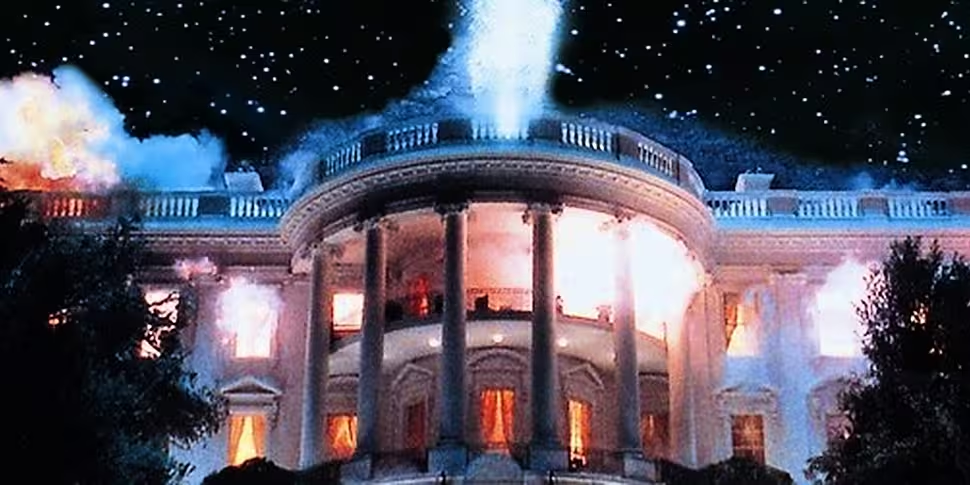In the mid 90s, just around the time that Will Smith and Jeff Goldblum were saving planet the US from having its bank holiday weekend ruined by some trigger-happy alien invaders, the number of UFO sightings in the UK skyrocketed. With a sequel to Independence Day due for release next year, will a new generation of smartphone-wielding conspiracy theorists be documenting dozens of blurred encounters of the third kind on Snapchat?
That’s what Dr David Clarke believes, an expert on UFO sightings whose childhood was spent devouring pulp sci-fi fiction and waiting for the UK government to finally admit that aliens are living here amongst us. Now, some 35 years on, David has moved on to respectfully debunking believers’ credulity.
“As I grew up and put my childhood things aside,” he told Sean Moncrieff, “I became a journalist and thought I’d look into these stories with a bit more depth. So I spent several decades trailing up and down the British Isles and Ireland, interviewing people who were involved in some of the big classic cases that people usually refer to as proof that aliens have been here.
“And I found something else, something completely different to what I’d expected – that yeah, they do exist, but they exist in the same way that many other myths exist, you know myths and legends and stories about spirits and ghosts and that sort of thing.”

Richard Dreyfuss as Roy Neary in Close Encounters of the Third Kind [YouTube]
While most of us are quick to shrug off believers’ fantastic tales and fanciful certainty that alien spacecraft regularly skims the Earth’s atmosphere on some intergalactic joyride, the unwavering belief that UFO ‘truthers’ have is like, Clarke says, a faith. The stories they tell are unfalsifiable, wrapped up in the trappings of a religious creed.
“It’s not a religion in the way that you’ve got Catholicism and Islam, where you’ve got a set of things that people believe and rituals that you go through. It’s got a lot of the trappings of faith, in that you cannot disprove it,” he says.
“I’ve gone through loads and loads of examples where somebody’s reported seeing something and you’ve reached a rational explanation of what it is that’s been seen, and you present that and the people who’ve reported or seen it simply will not accept it. Even though it’s absolutely undoubted that that’s what was seen.”
During his research, Clarke sifted through a number of declassified British Ministry of Defence documents in which civil servants had logged all the UFO sightings reported by UK citizens. It was there that he noticed the correlation between reports and blockbuster film releases.
“It’s pretty crude data, and I’m not trying to say that this is scientifically proved, but if you just look at the basic number of sighting results that they logged per year, you notice that when you plot them on a graph that you get massive spikes in the years when big films and anniversaries were out,” he says.
Take for instance 1978 and Close Encounters of the Third Kind, where Richard Dreyfuss gets sunburnt by some aliens flying overhead. The movie led to a significant spike in sightings.
“Rather than going out of the cinema and looking down at your feet, people are looking up at the sky and probably seeing quite ordinary things that they would otherwise have just ignored,” Clarke says.
“And you get this massive peak in sightings reported in ’96 and ’97, which was the 50th anniversary of the birth of flying saucers. Also we had Independence Day, the film, released. So the more awareness there is, the more that people say that they see things.”
And as Clarke is quick to point out, he never denies that the people who claim to have witness aliens flying across the sky genuinely believe in what they saw – just that they are misinterpreting what they see, seeing the extraordinary in the ordinary.

David Clarke's new book examines how pop culture feeds the lore of alien visitations [Amazon]
At one point in his book, How UFOs Conquered the World, he interviews the final investigator sent by the MoD out into the field in the 1960s to poke around forests and speak to witnesses of extraterrestrial visits.
“And the investigator basically came to the conclusion that, yeah, there were people who were seeing things and believed in what they saw, but what they saw could not be used as evidence,” Clarke says.
“And the comment he made to me was that it’s the people who see these things who are far more worthy of investigation. But then again he would say that as a psychologist, I suppose!”
Listen back to Sean Moncrieff's full interview with David Clarke below:









